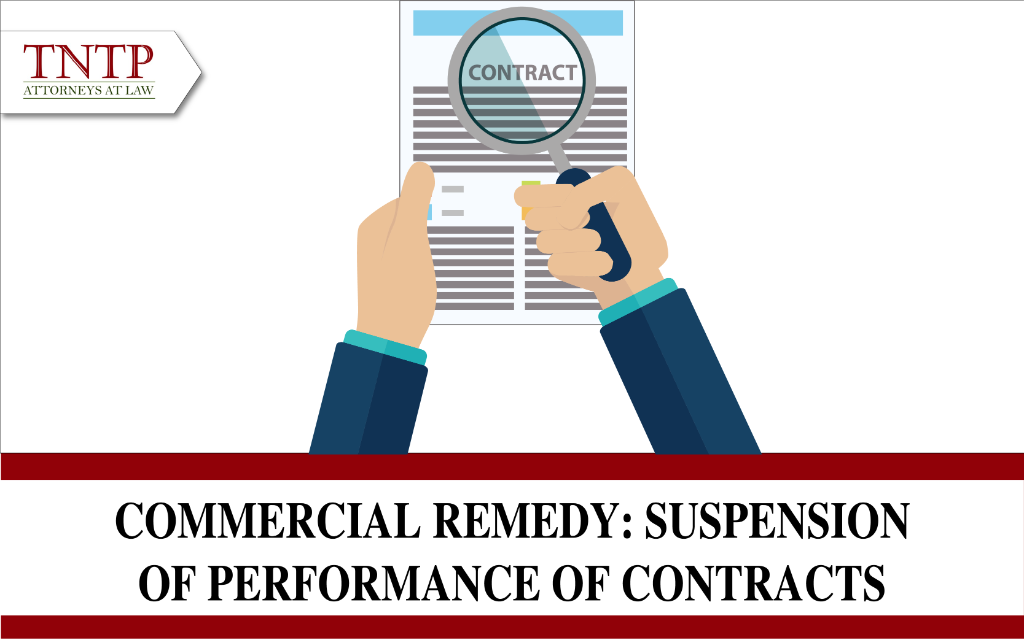Commercial remedy: Suspension of performance of contracts

Suspension of performance of contracts, as stipulated in the Commercial Law of 2005 (“CL”), is a commonly applied measure in trade. To apply this measure appropriately in accordance with the actual situation and to safeguard the legitimate interests of all parties involved, it is essential for parties to have a clear understanding of the legal provisions governing this measure. In this article, TNTP will present the key points that parties should consider regarding the suspension of performance of contracts.
1. Definition of Suspension of performance of contracts
In general terms, suspending performance means temporarily refraining from doing something, with the possibility of carrying it out at a later time.
Suspending contract performance, as per the CL, means that, upon the contract performance deadline, one party is temporarily relieved from fulfilling its contractual obligations. If it does proceed with performance, it will do so at a later time. In cases where the suspension of contract performance is carried out in accordance with legal regulations and the agreement of the parties, the party suspending performance is not subject to remedies. For example: A and B enter into a sales contract, where A is the seller and B is the buyer. The parties agree that B will make an advance payment to A three days before A delivers the goods. However, as B fails to make the advance payment to A on time, A does not deliver the goods to B. A’s failure to deliver the goods is understood as A applying the measure of suspending contract performance.
2. Cases for Suspension of performance of contracts
According to the provisions of the CL, except for cases of exemption specified in the CL, one of the parties has the right to suspend contract performance in the following cases:
• When a breach occurs as agreed upon as a condition for suspending the contract;
• When one party breaches a fundamental contractual obligation.
It can be observed that the CL provides only general guidance on cases where contract performance may be suspended, making its practical application challenging due to potential disagreements among the parties. To minimize risks and disputes when applying this measure, parties should include specific provisions in their commercial contracts regarding the following:
• A detailed list of specific cases in which each party may suspend contract performance;
• Obligations related to notifying the other party when suspending contract performance;
• Maximum duration for suspending contract performance;
• Legal consequences after the suspension period expires, including resumption, termination, or continuation of contract performance, etc.
3. Legal Consequences of Suspension of performance of contracts
Under the provisions of the CL, the legal consequences of suspending contract performance are as follows:
• When a contract is temporarily suspended, the contract remains valid.
• The aggrieved party has the right to claim compensation for damages according to the CL.
Therefore, when a contract is temporarily suspended, it still maintains legal validity and binds the parties. In such cases, contract performance is only temporarily interrupted, and if the breaching party rectifies the situation and fulfills its obligations, the contract may continue to be performed. However, the party suspending contract performance must promptly notify the other party of the suspension. Failure to provide immediate notice resulting in harm to the other party may require the party suspending contract performance to compensate for damages.
The above is the article “Commercial remedy: Suspension of performance of contracts” that TNTP has provided to readers. In case of any issues or need for further clarification, please contact TNTP for timely assistance.
Sincerely,


